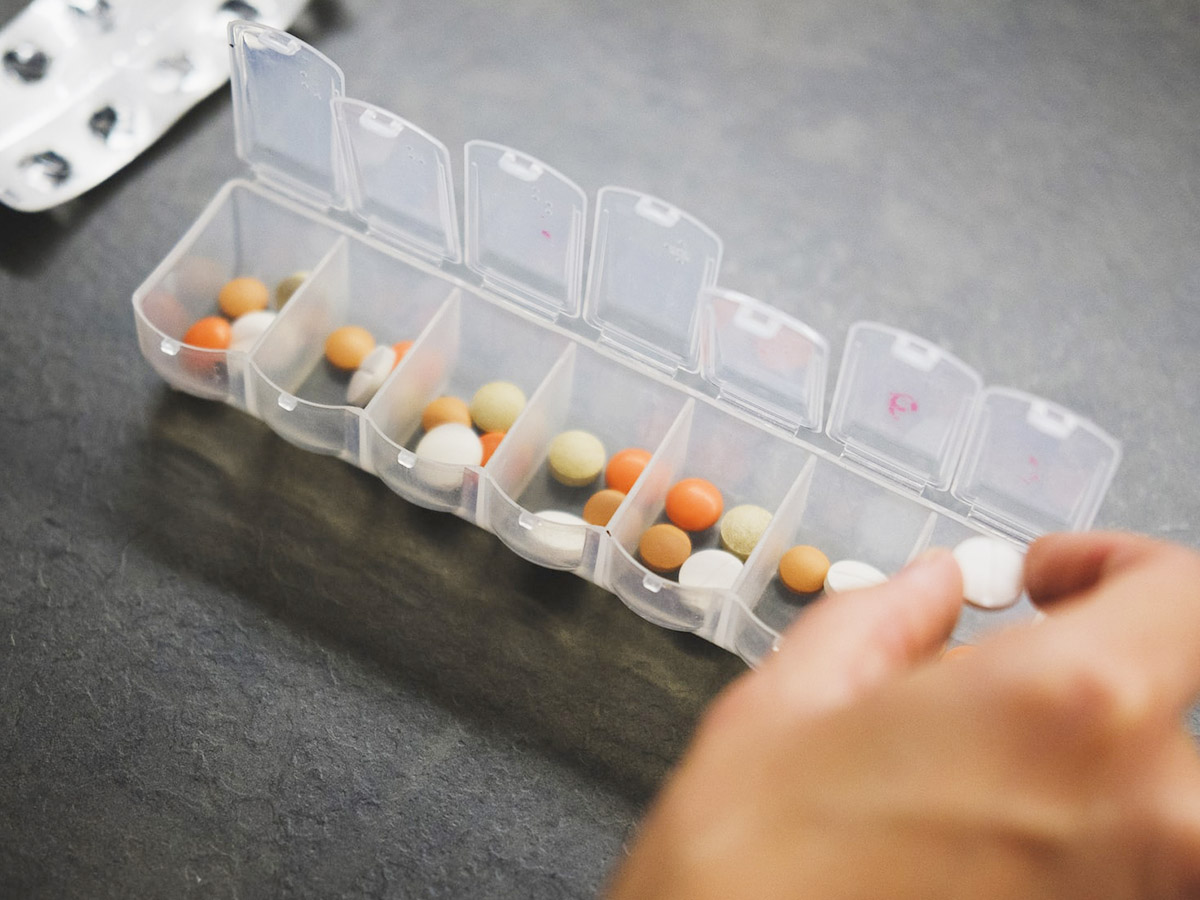If you’re like most people, you’re always looking for ways to improve your sleep. Whether it’s cutting out caffeine or trying to stick to a regular sleep schedule, there are a lot of things you can do to try to get better sleep. But what about taking nootropics? Nootropics are a type of supplement that’s designed to improve cognitive function. Some people believe that they can also help with sleep. But will nootropics actually help you sleep or will nootropics keep you awake?
In this blog post, we’ll take a look at the effects of nootropics on sleep. We’ll also discuss how nootropics can affect your sleep patterns and whether or not they’re safe to take for sleep.
The Effects Of Nootropics On Sleep
There are a number of nootropics that have been shown to improve sleep quality. These substances can help to improve the quantity and quality of sleep, which can lead to better overall health. Additionally, they can increase alertness and reduce fatigue during the day. This could make you more productive and allow you to stay awake for longer periods of time. However, some nootropics may also have side effects that could keep you up at night. If this is an issue for you, be sure to speak with your doctor before using any nootropic supplements.
There are a number of different types of nootropics. Some, such as caffeine, can have stimulant effects that can keep you awake at night. Others, such as chamomile, may have relaxant effects that can help you to fall asleep faster. It is important to choose the right nootropic for your needs if you want to enjoy optimal sleep quality. Be sure to speak with your doctor before starting any supplement because some might not be safe for pregnant women or children.
How Nootropics Can Affect Your Sleep Patterns
Nootropics are supplements that are often used to improve cognitive function. Some people find that nootropics can help improve their sleep quality. This is because nootropics can help you fall asleep faster and stay asleep longer. Additionally, they can also increase your REM (rapid eye movement) sleep.
Nootropics can have a significant impact on your sleep quality. They can help you fall asleep faster and stay asleep for a longer period of time. Additionally, they can increase your REM (rapid eye movement) sleep. This is important because REM sleep is key for consolidating memories and learning new information.
There are many different nootropic supplements available on the market today. However, it is important to be careful when choosing one. Make sure that the nootropic you are using is safe for use before taking it. Also, be sure to take the supplement at the same time every night in order to get the most benefit from it.
The Benefits Of Taking Nootropics For Sleep
Nootropics are a type of supplement that aims to improve sleep quality. While there is still some research that needs to be done in this area, the benefits of taking nootropics for sleep appear to be considerable.
Nootropics may improve sleep quality by reducing stress and anxiety. In addition, they may also help you fall asleep faster and stay asleep longer. This can lead to improved overall sleep quality and better performance during the day.
Nootropics also reduce stress and anxiety levels. This is likely due to their ability to enhance focus, productivity, and motivation. Additionally, they may help you relax after a long day of work or school. This can reduce the amount of stress you feel throughout the night, which can in turn improve your overall sleep quality.
One of the most common benefits of nootropic use is that it enhances focus, productivity, and motivation levels. This is likely due to their ability to increase cognitive flexibility – your ability to think outside the box and problem-solve effectively under pressure. Additionally, nootropic use has been shown to increase alertness (which can help you stay awake during classes or work), as well as mood stability (which reduces feelings of sadness or depression).
The Best Time To Take Nootropics For Sleep

There are a few different types of nootropics that can help improve sleep quality. Some work by helping you fall asleep faster, while others may help to keep you asleep longer. Additionally, they can also help to improve cognitive function and reduce anxiety. The best time to take these nootropics is about 30 minutes before you go to bed. This will allow them to work to their full effect, leading to a more relaxed feeling at bedtime and improved sleep overall.
How Long Do Nootropics Stay In Your System?
Nootropics are substances that are intended to improve cognitive function. They can be used on an as-needed basis and generally have a well-tolerated side-effect profile. Some evidence suggests that they may also help with sleep problems; however, more research is needed to confirm these benefits.
The half-life of a nootropic can vary depending on the drug, but in general, they tend to last between two and four hours. This means that most will be eliminated from the system within eight to 12 hours. However, some drugs may have longer half-lives and may take up to 24 hours for them to be completely removed.
Are There Any Side Effects Of Taking Nootropics?
Nootropics are drugs that are often used to improve cognitive function; however, many people still have questions about whether or not these drugs have any side effects. In this section, we will discuss some of the most common side effects reported by people who take nootropics.
People with sleep problems report feeling more awake after taking nootropics. This is likely due to the fact that nootropics help to increase levels of brain-derived neurotrophic factor (BDNF). BDNF is a protein that promotes growth and development in the brain. Additionally, nootropic drugs like modafinil also increase levels of serotonin and dopamine in the brain. These neurotransmitters are responsible for regulating mood and energy levels.
There are currently no known side effects of taking nootropics; however, it is important to speak with your doctor before starting any new drug therapy. Your doctor can help you determine if taking a specific nootropic is right for you, and they can monitor your health closely while you are using them.
What Are The Risks Of Taking Nootropics?
If you’re looking for a nootropic to help improve your sleep, be careful. Many of these supplements are known to have side effects and interactions with other medications. If you have any concerns about taking a nootropic, talk to your doctor first. Additionally, many nootropics have been linked with adverse effects such as headaches, dizziness, and nausea. So if you’re considering using one of these supplements, it’s important to be aware of the risks involved.
Nootropics can be divided into two categories: cognitive enhancers and nootropic supplements for sleep. While both types of supplements have their benefits and drawbacks, cognitive enhancers are more likely to cause side effects. For example, modafinil is a cognitive enhancer that’s been linked with headaches and dizziness. Nuvigil is a nootropic supplement for sleep that’s also been associated with headaches and dizziness.
While these side effects are rare, they can still occur. Additionally, many nootropics interact with other medications or supplements. If you’re taking any other medications or supplements, it’s important to speak with your doctor before using a nootropic. Finally, many nootropics have been found to be ineffective or only mildly effective in terms of improving memory or concentration.
Is It Safe To Take Nootropics For Sleep?
There is no definitive answer to whether or not nootropics are safe for sleep, as there is currently insufficient research on the subject. However, some people believe that they can help with sleep by reducing anxiety and improving focus and attention. If you are considering taking nootropics for sleep, it is important to speak with a healthcare professional first to discuss the risks and benefits.
There is some evidence to suggest that nootropics can help improve sleep quality. For example, one study found that volunteers who took an antioxidants and nootropic combination pill before bed reported better sleep quality than those who did not take the pill. Additionally, another study found that participants who took a nootropic supplement before bed improved their overall alertness and concentration for several hours after taking it.
However, there is also evidence to suggest that nootropics can have negative effects on sleep. For example, one study found that people who used cognitive enhancers prior to sleeping experienced increased levels of anxiety and stress the next morning. Therefore, it is important to weigh the risks and benefits of using nootropics for sleep before making any decisions.
Conclusion: Will nootropics keep you awake?
Nootropics are a type of supplement that can have a positive effect on sleep. However, it is important to be aware of the potential risks and side effects before taking them. If you have any concerns, talk to your doctor before using any nootropic supplements.

